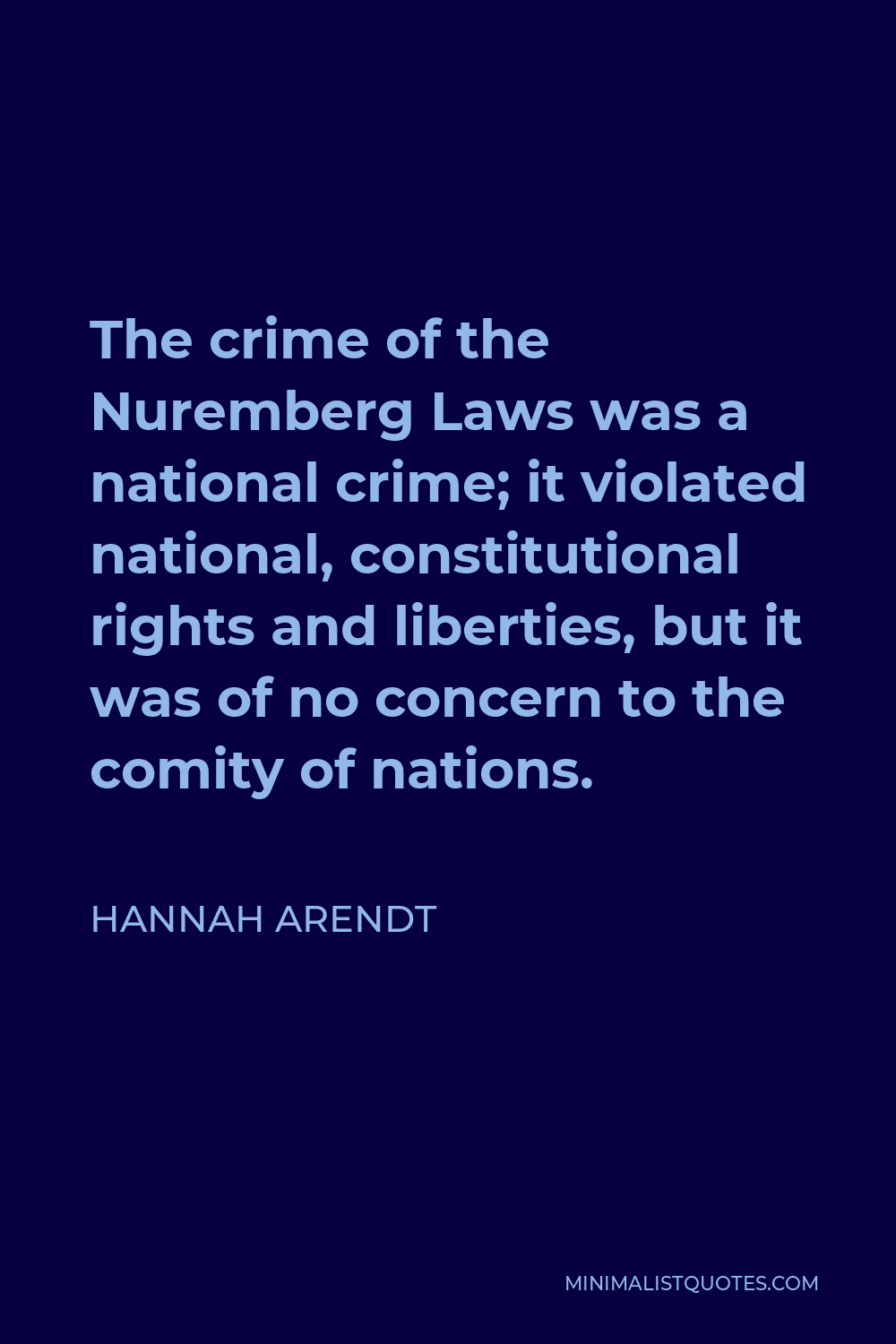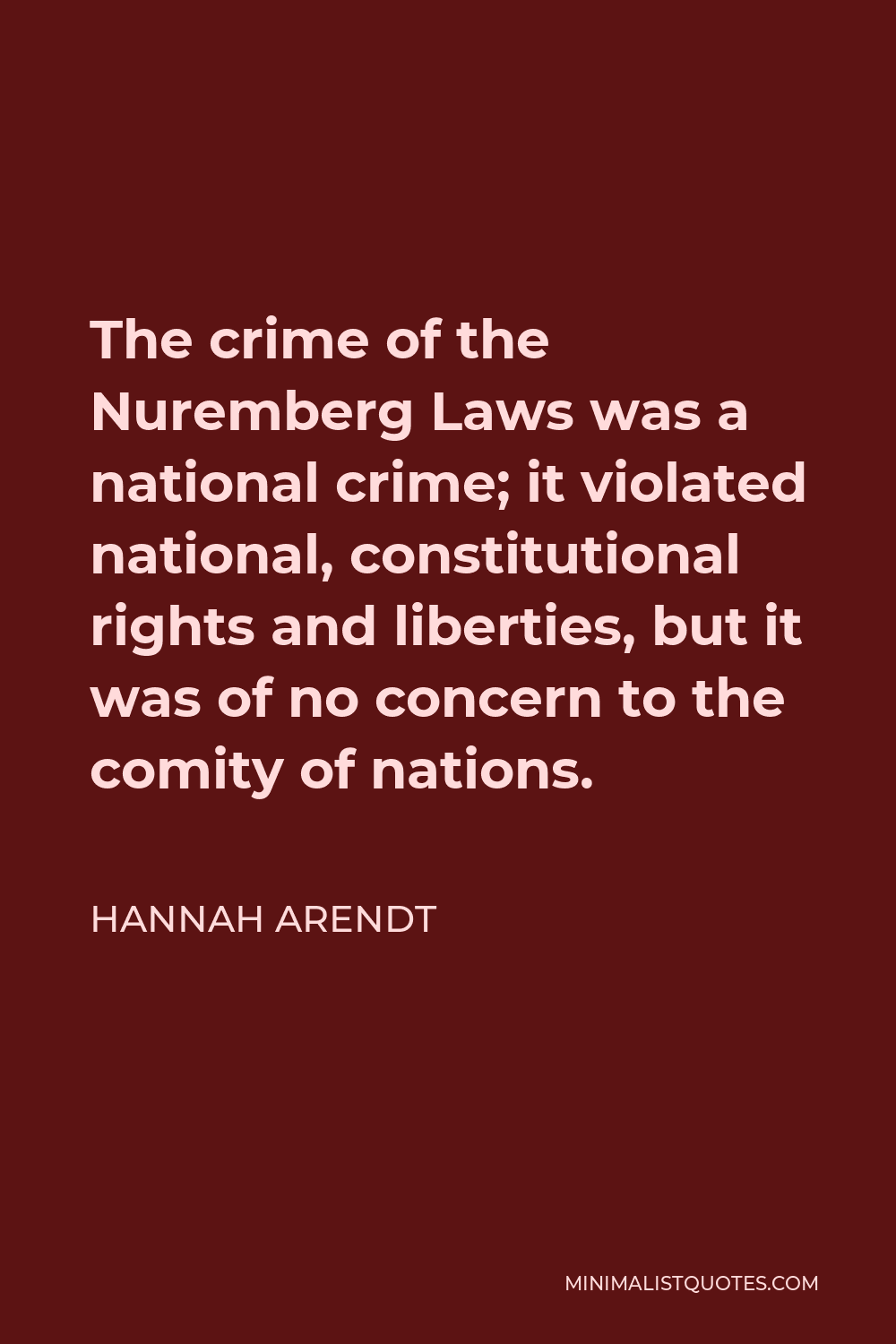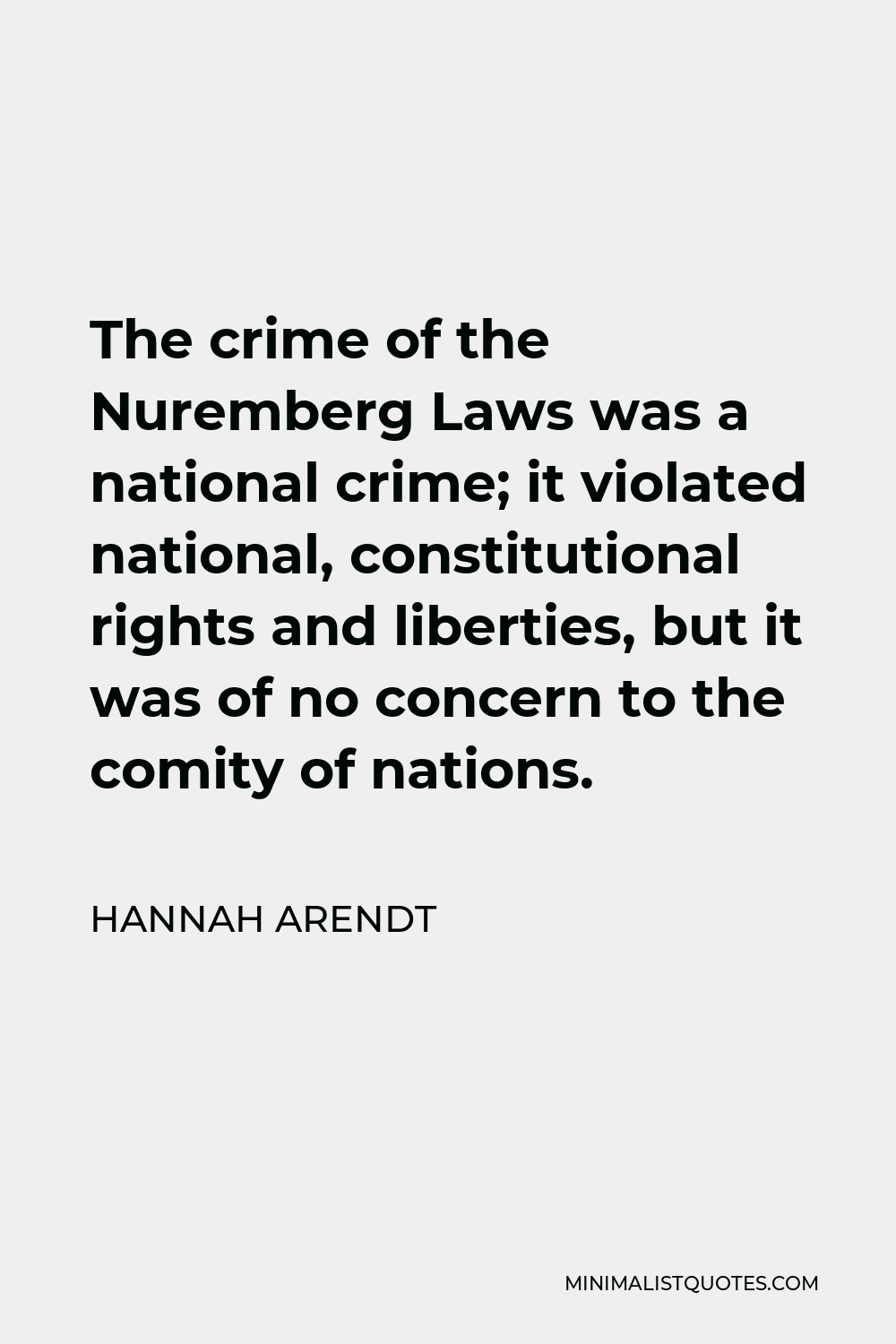Good works, because they must be forgotten instantly, can never become part of the world; they come and go,leaving no trace. They truly are not of this world.
HANNAH ARENDTThe crime of the Nuremberg Laws was a national crime; it violated national, constitutional rights and liberties, but it was of no concern to the comity of nations.
More Hannah Arendt Quotes
-





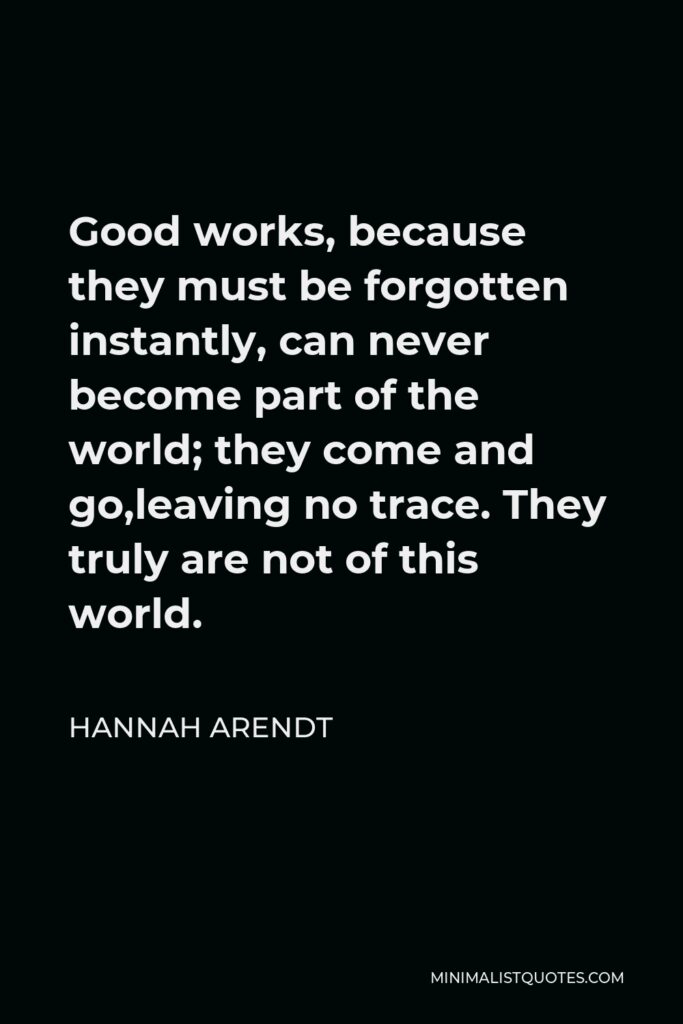

-





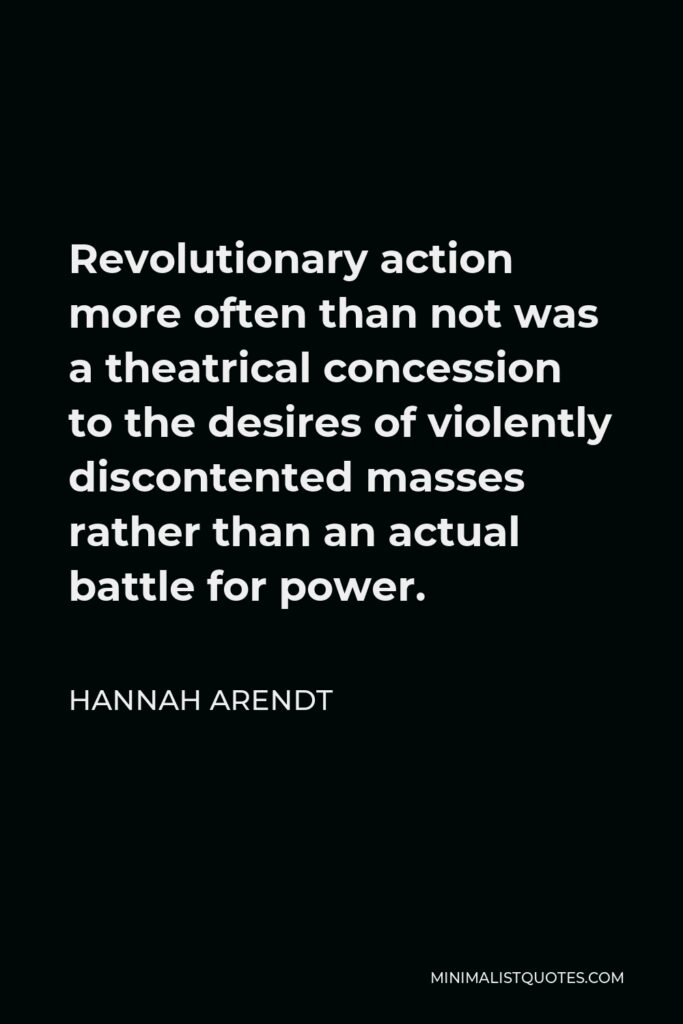

Revolutionary action more often than not was a theatrical concession to the desires of violently discontented masses rather than an actual battle for power.
HANNAH ARENDT -





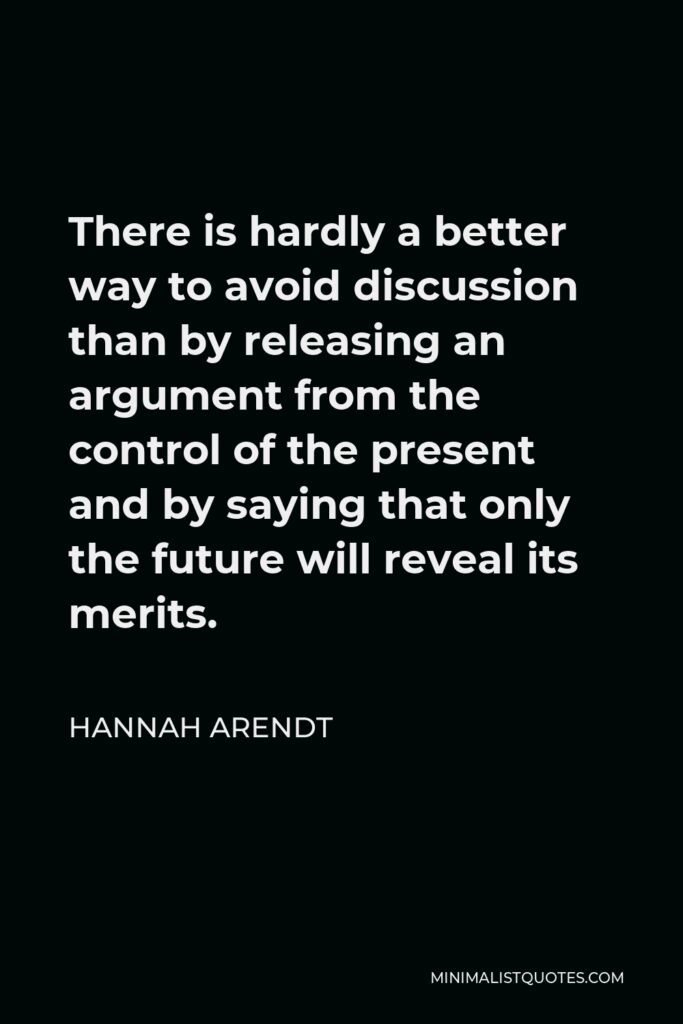

There is hardly a better way to avoid discussion than by releasing an argument from the control of the present and by saying that only the future will reveal its merits.
HANNAH ARENDT -





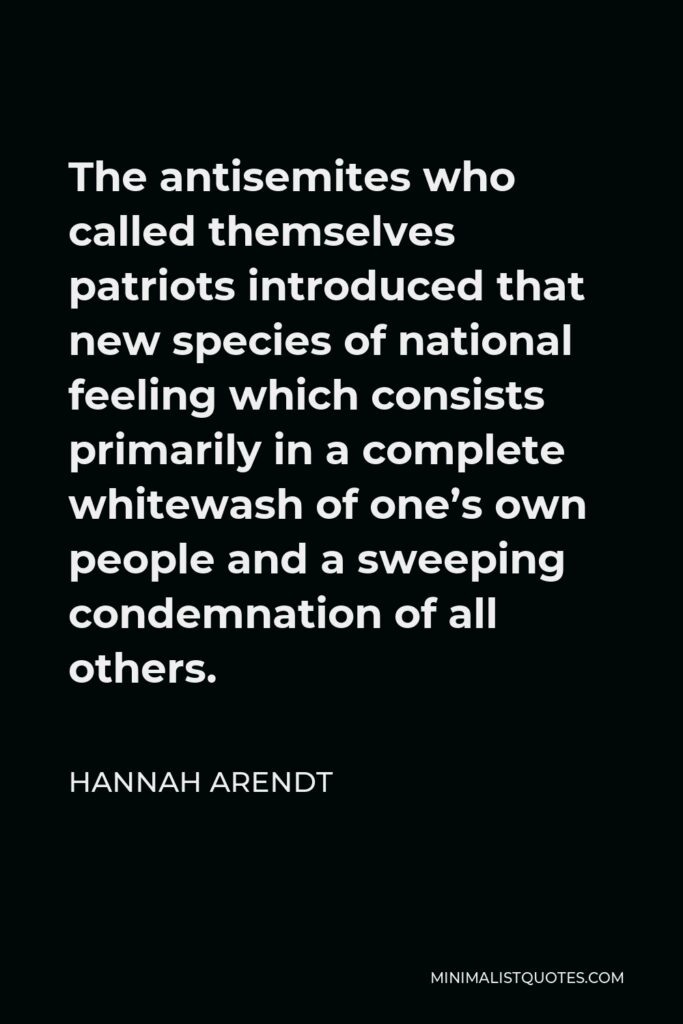

The antisemites who called themselves patriots introduced that new species of national feeling which consists primarily in a complete whitewash of one’s own people and a sweeping condemnation of all others.
HANNAH ARENDT -







The language of the mob was only the language of public opinion cleansed of hypocrisy and restraint.
HANNAH ARENDT -







Justice insists on the importance of Adolf Eichmann… On trial are his deeds, not the sufferings of the Jews, not the German people or mankind, not even anti-Semitism and racism.
HANNAH ARENDT -





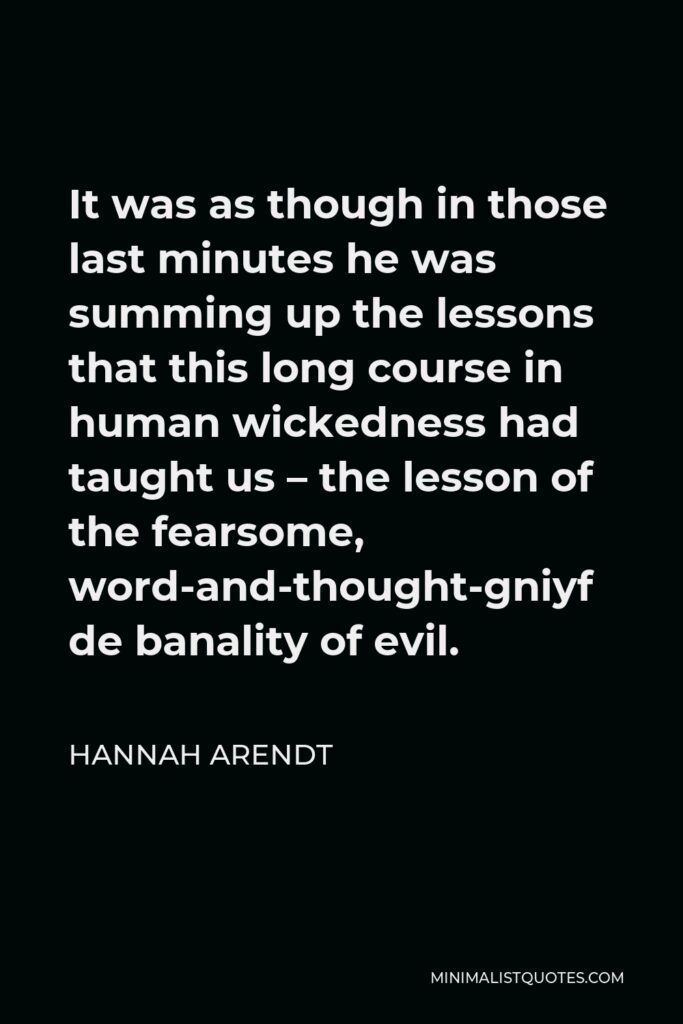

It was as though in those last minutes he was summing up the lessons that this long course in human wickedness had taught us – the lesson of the fearsome, word-and-thought-defying banality of evil.
HANNAH ARENDT -







The organization of the entire texture of life according to an ideology can be fully carried out only under a totalitarian regime.
HANNAH ARENDT -





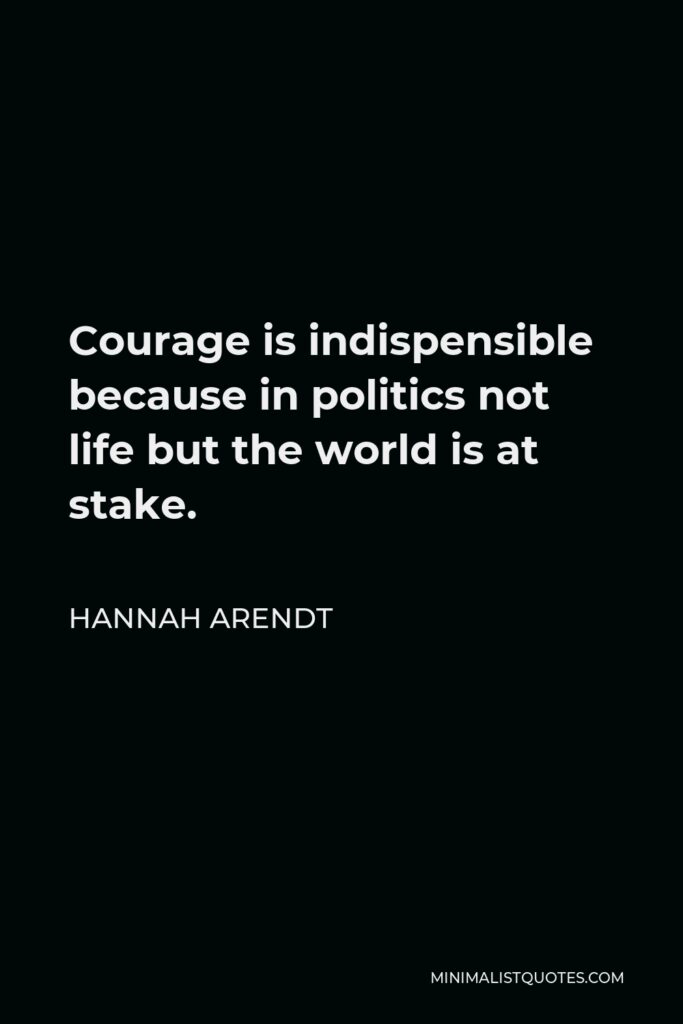

Courage is indispensible because in politics not life but the world is at stake.
HANNAH ARENDT -





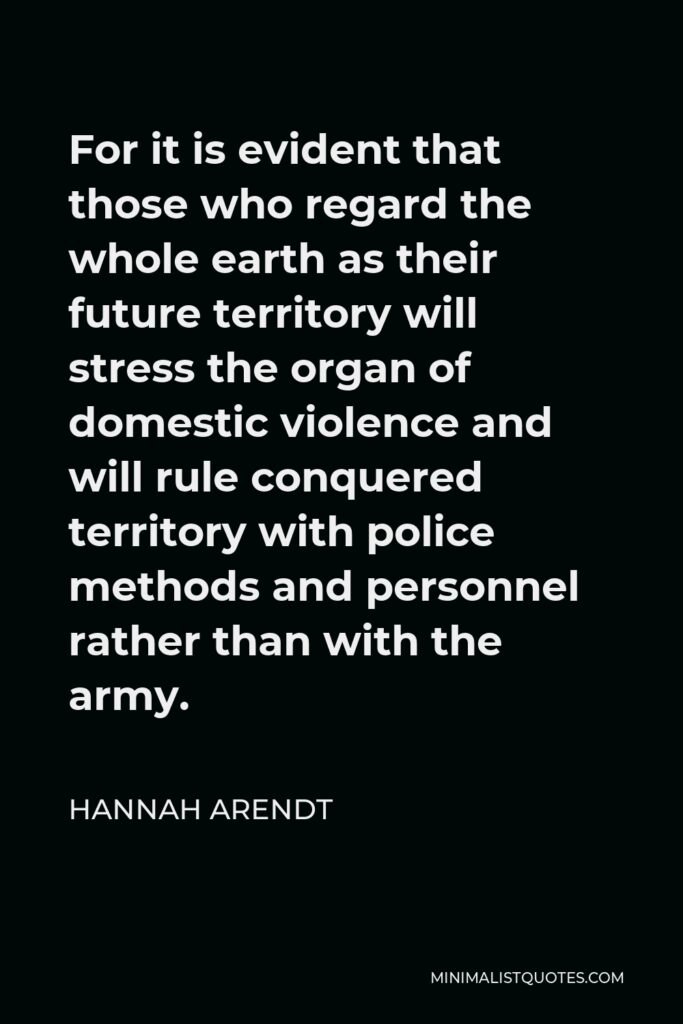

For it is evident that those who regard the whole earth as their future territory will stress the organ of domestic violence and will rule conquered territory with police methods and personnel rather than with the army.
HANNAH ARENDT -





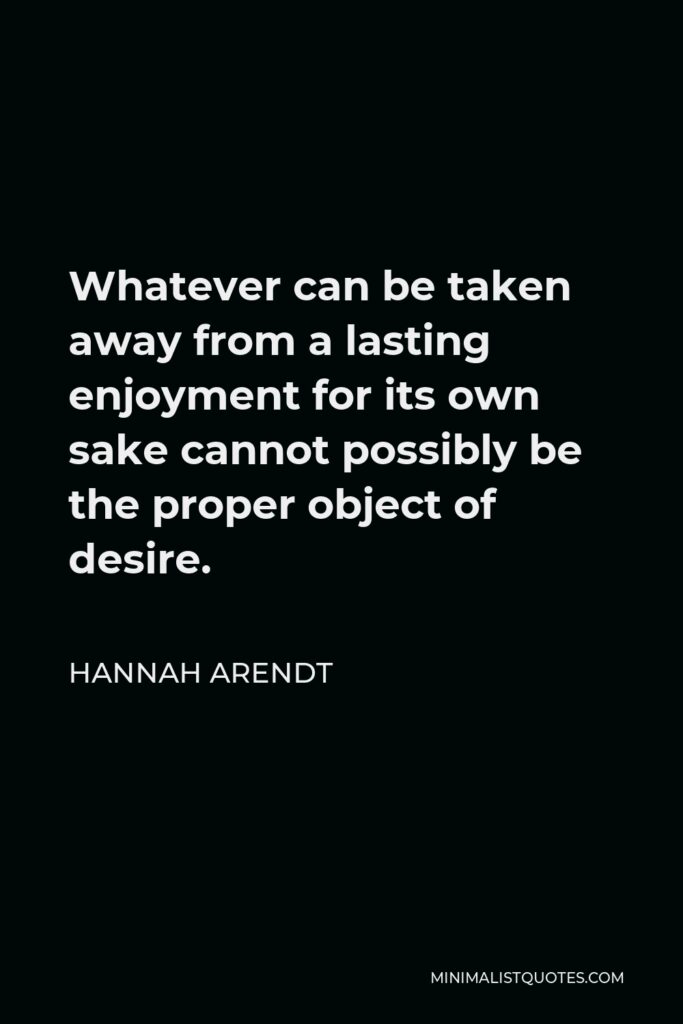

Whatever can be taken away from a lasting enjoyment for its own sake cannot possibly be the proper object of desire.
HANNAH ARENDT -





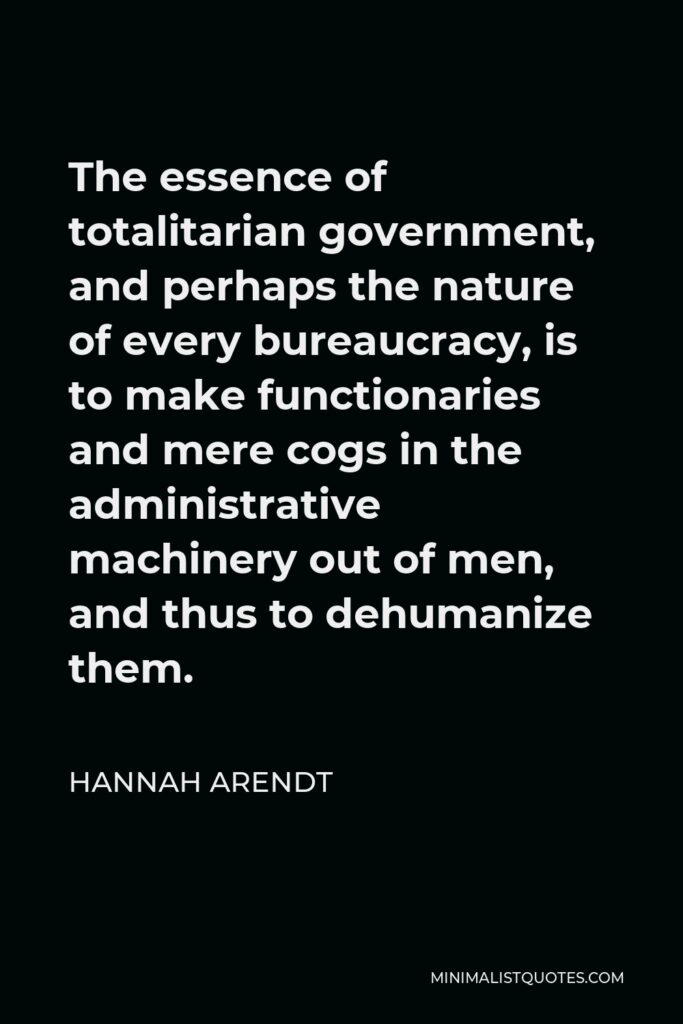

The essence of totalitarian government, and perhaps the nature of every bureaucracy, is to make functionaries and mere cogs in the administrative machinery out of men, and thus to dehumanize them.
HANNAH ARENDT -





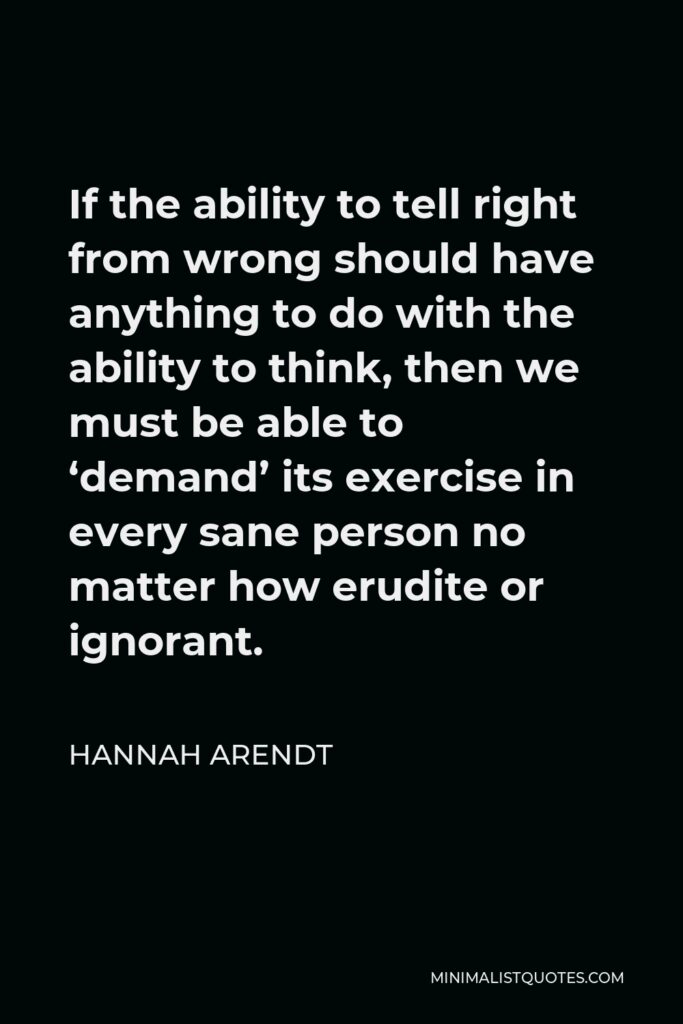

If the ability to tell right from wrong should have anything to do with the ability to think, then we must be able to ‘demand’ its exercise in every sane person no matter how erudite or ignorant.
HANNAH ARENDT -







When all are guilty, no one is; confessions of collective guilt are the best possible safeguard against the discovery of culprits, and the very magnitude of the crime the best excuse for doing nothing.
HANNAH ARENDT -





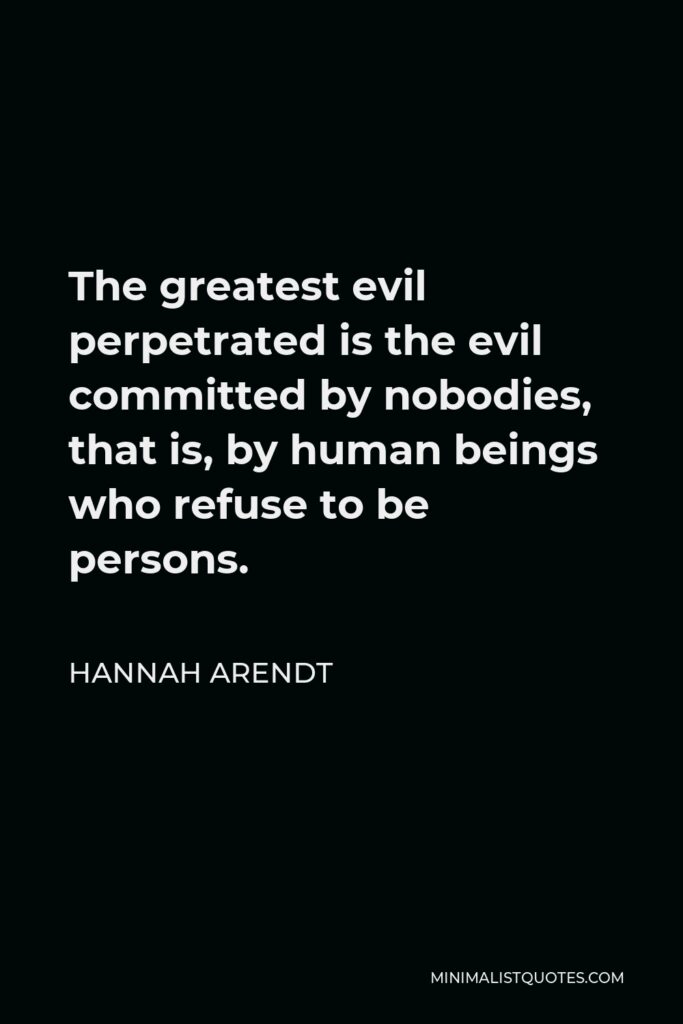

The greatest evil perpetrated is the evil committed by nobodies, that is, by human beings who refuse to be persons.
HANNAH ARENDT -





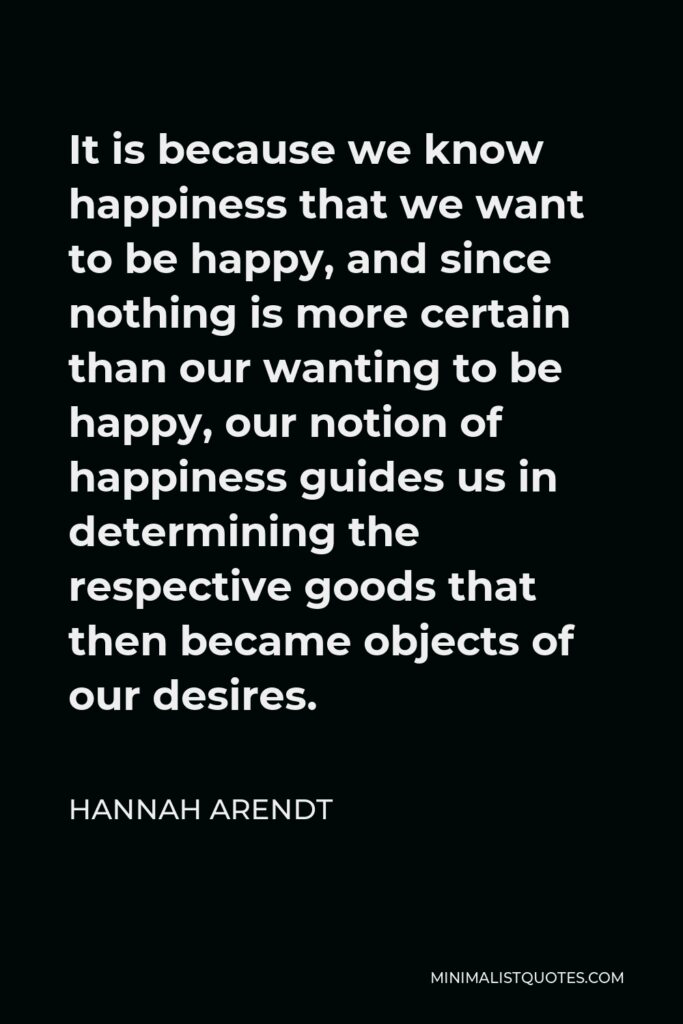

It is because we know happiness that we want to be happy, and since nothing is more certain than our wanting to be happy, our notion of happiness guides us in determining the respective goods that then became objects of our desires.
HANNAH ARENDT


